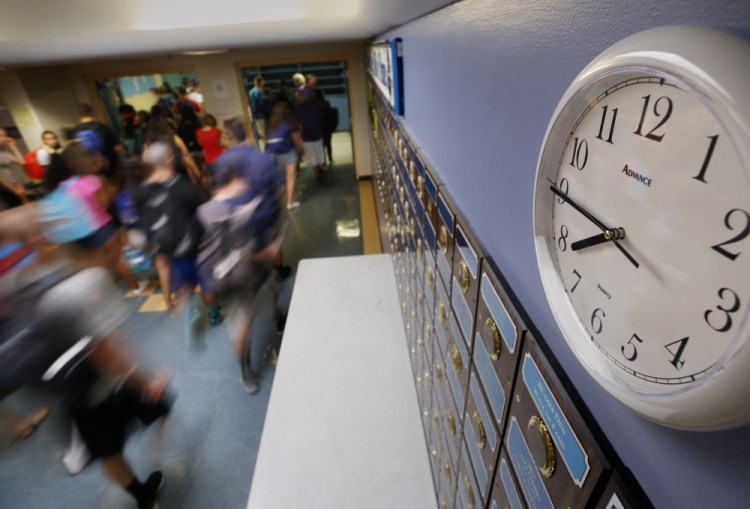The nation’s millions of public school students are back in the classroom, grappling with new subjects, information and concepts. It’s not easy, but that’s how you learn.
Unfortunately, we adults haven’t caught on to this reality. Exhibit A: Our ability to shrug off the decades of research indicating the academic and health benefits of delaying school start times. But a new study estimates the U.S. could save billions of dollars a year from later class starts – information that we shouldn’t ignore if we really want our students to succeed.
Numerous studies have documented the upside to starting classes later, including improved test scores and lower rates of sports injuries, substance abuse, suicide, obesity, diabetes and depression. Adolescents are wired to fall asleep late and wake up late, and later high and middle school start times improve students’ health and ability to learn.
Now a first-of-its-kind study shows that there are also economic benefits to a later school bell – and they far outweigh the cost of implementing the shift. If every state in the country started public school classes no earlier than 8:30 a.m., the United States would net roughly $83 billion within a decade, according to the Rand Corp. The estimated fiscal boon would come from higher grades – leading to improved graduation rates, better jobs and greater lifetime earnings – and lower costs associated with car crashes involving sleep-deprived teens.
The biggest expense related to the shift would be – no surprise – reconfiguring bus schedules, which would cost districts an estimated $150 per student per year, Rand found. To stay open later, each school would also incur a one-time cost of $110,000 for lighting and other additional infrastructure.
Maine’s average high school start time is 7:53 a.m., 10 minutes earlier than the national average of 8:03 a.m., according to the U.S. Centers for Disease Control and Prevention, and many Maine high schools start at 7:30 a.m. or earlier. Though several Maine districts have voluntarily adopted later high school start times, a proposal to require secondary schools to start classes no earlier than 8:30 a.m. turned into a watered-down bill that said the state only “suggests” that schools adopt the later start time, then stalled out altogether in May.
The Rand research should spur lawmakers to revisit the topic. The science supports the shift – now that we know that the bottom line does, too, we can’t afford not to act.
Send questions/comments to the editors.


